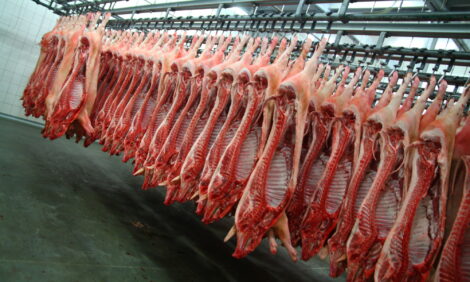



Stabilizing pork producers' financial roller coaster
By Robert Fieldhouse, Ontario Pork - Dramatic price fluctuations can be set off by the subtlest changes in supply and demand for meat. But University of Guelph researchers studying the Ontario swine industry's competitiveness believe strong farm policies and good production and financial information can lead to greater stability - and therefore profitability - for farmers.
Prof. Ken McEwan and research associate Lynn Marchand of Ridgetown College have established the Ontario Data Analysis Project (ODAP) database, an extension tool that's helping lenders, feed companies and other industry stakeholders better understand the industry and issues affecting their clients. ODAP data is providing insight into the economic issues in the swine industry, and it's pointing the way towards effective farm policy needed to support farmers when incomes drop.
The researchers have been gathering production and financial data detailing the ever-problematic four-year hog cycle, with high hog production leading to low hog prices, and low hog production leading to high hog prices.
"Farm financial health swings up and down like a roller coaster depending on where we are in the hog cycle," says McEwan. "Public policy has an important role to play because even profitable producers need a safety net."
The researchers have been gathering information - such as production and financial data, producers' ages and farm sizes - from ten southwestern Ontario counties since 1993. The data they're accumulating has been used nationally to help analyze the new Canadian Agricultural Income Stabilization Program (CAIS). The researchers believe ODAP has helped producers better understand and relate to CAIS, and showed it could be responsive to income swings, which could help keep producers on even keel as prices yo-yo through the hog cycle.
Prices also sway as hogs and hog products are transferred through the value chain, from producer to processor to retailer to consumer. The prices processors will pay producers can fluctuate widely with subtle supply and demand changes, and there's also price variation between processors and retailers. The stickiest price is between retailers and consumers: it's held relatively constant because there's stiff competition with other meat products such as beef and poultry that consumers both at home and abroad may purchase instead.
Price fluctuations hit producers hardest, however, with a one per cent change in production often causing a three- to ten-per-cent price change at the farm gate, says McEwan. Drastic changes from $1 to $2 per kilogram between producers and processors have been known to happen. Research shows that only 15 per cent of producers turn a profit in all four years of the hog cycle; a full third struggle with profitability.
To be profitable, producers must be fiscally prudent by having management skills suitable to farming and hog production. They must keep production efficient, debt manageable and costs under control. This may involve discretion in certain situations, says Marchand, such as putting expansion and building plans on hold when necessary.
But even financially savvy producers still need help navigating the territory of government policy, business climate, exchange rates, foreign markets and domestic demand. That's where ODAP comes in, serving a vital role in assessing market situations and their effect on producers. With time, McEwan and Marchand hope the importance of good farm policy will filter down to the public.
"There is a broader implication to consumers, who should understand the dynamics of meat production," says McEwan. "It's important to recognize the trials and tribulations hog producers face - and the need for solid farm policy."
This research is sponsored by Agriculture and Agri-Food Canada.
For more information, contact Jean Howden, Ontario Pork research coordinator, at 1-877-668-7675 or
[email protected]
Source: Ontario Pork, August 2004
Robert Fieldhouse is a writer with SPARK, the University of Guelph's student writing program.









